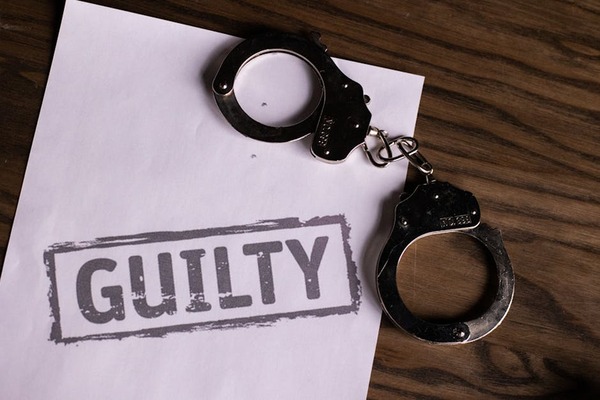- Attorney-Lawyer.esq
- Blog
- Criminal Justice Reform
Criminal Justice Reform

Criminal justice reform is a pressing issue in many countries around the world. It encompasses a wide range of policies and practices aimed at improving the fairness and effectiveness of the criminal justice system. From reducing racial disparities to addressing overcrowding in prisons and promoting rehabilitation over punishment, there are many areas in need of reform. In this article, we will discuss the importance of criminal justice reform, the challenges in the current system, and various aspects that need attention for a more just and equitable system.
The Importance of Criminal Justice Reform
Criminal justice reform is crucial for ensuring that the system is fair, just, and effective in protecting the rights of all individuals. It aims to address issues such as discrimination, inequality, and inefficiency that are prevalent within the current system. By implementing reforms, we can promote public safety, reduce crime rates, and improve trust in law enforcement. Additionally, reforming the criminal justice system can help save taxpayers' money by reducing the costs associated with incarceration and court proceedings.
Challenges in the Current System
The current criminal justice system faces numerous challenges that hinder its ability to effectively serve the community. These challenges include systemic racism, overcrowding in jails and prisons, high recidivism rates, lack of rehabilitation programs, and a focus on punishment rather than prevention. These issues contribute to the cycle of crime and perpetuate inequalities within the system. Addressing these challenges through reform is essential for creating a more equitable and efficient criminal justice system.
Racial Disparities in the Criminal Justice System
One of the most significant challenges in the criminal justice system is the racial disparities that exist at every stage of the process. From arrest to sentencing, people of color, particularly African Americans and Latinos, are disproportionately impacted by the system. Factors such as implicit bias, unequal treatment, and socioeconomic disparities contribute to these disparities. Criminal justice reform seeks to address these issues by promoting racial equity, implementing bias training for law enforcement, and creating more transparent and accountable practices.
Overcrowding in Prisons and Jails
Overcrowding in prisons and jails is a severe issue that plagues the criminal justice system. It leads to inhumane living conditions, increased violence, and limited access to rehabilitation programs. The high costs associated with incarceration also strain government budgets and resources. Criminal justice reform aims to reduce overcrowding by implementing alternative sentencing options, expanding access to mental health and substance abuse treatment, and promoting early release programs for nonviolent offenders.
Rehabilitation and Recidivism Rates
Rehabilitation is a crucial aspect of criminal justice reform that focuses on helping individuals reintegrate into society and lead productive lives after serving their sentence. By providing education, job training, and mental health services to inmates, we can reduce recidivism rates and prevent individuals from returning to a life of crime. Investing in rehabilitation programs has been shown to be more effective in reducing crime and promoting public safety than punitive measures alone.
Alternatives to Incarceration
Incarceration is not always the most effective or appropriate response to crime. Criminal justice reform advocates for alternatives to incarceration, such as community service, probation, drug courts, and restorative justice programs. These alternatives focus on addressing the root causes of criminal behavior, promoting accountability, and repairing harm caused to victims and communities. By offering a range of options beyond imprisonment, we can create a more balanced and restorative criminal justice system.
Police Reform and Accountability
Police reform is a critical component of criminal justice reform that focuses on improving transparency, accountability, and trust between law enforcement and the community. Measures such as body cameras, de-escalation training, community policing, and civilian oversight boards can help reduce police misconduct, racial profiling, and excessive use of force. By holding police officers accountable for their actions and promoting ethical behavior, we can build stronger relationships between law enforcement and the communities they serve.
Advocacy for Change
Advocacy plays a vital role in driving criminal justice reform efforts and raising awareness about the need for change. Advocates, activists, and organizations work to promote policies that prioritize fairness, equality, and rehabilitation within the criminal justice system. By mobilizing public support, advocating for legislative reforms, and amplifying the voices of those impacted by the system, advocates can bring about meaningful change and create a more just and equitable criminal justice system.
Impact of Mental Health on Criminal Justice
The intersection of mental health and the criminal justice system is a significant concern that requires attention through reform. Many individuals in the justice system have mental health issues that go untreated, leading to increased incarceration rates and recidivism. By investing in mental health services, diverting individuals to treatment programs, and training law enforcement to handle mental health crises effectively, we can reduce the burden on the criminal justice system and provide better outcomes for individuals with mental illness.
Restorative Justice Practices
Restorative justice is an alternative approach to addressing crime that focuses on repairing harm, promoting accountability, and restoring relationships between offenders, victims, and communities. By bringing all parties together to discuss the impact of the crime, identify solutions, and work towards healing, restorative justice practices can create a more meaningful and transformative form of justice. Criminal justice reform advocates for the expansion of restorative justice programs as a more humane and effective way of addressing crime and promoting healing.
The Role of Technology in Reform
Technology plays a crucial role in driving criminal justice reform by improving data collection, analysis, and communication within the system. Tools such as predictive analytics, electronic monitoring, and body cameras can help increase transparency, efficiency, and accountability in law enforcement and the courts. By leveraging technology to identify trends, monitor outcomes, and track progress, we can make more informed decisions and implement evidence-based reforms that lead to better outcomes for all stakeholders.
Future Directions for Criminal Justice Reform
As we look towards the future of criminal justice reform, there are several key areas that will require continued attention and action. These include increasing investments in rehabilitation and reentry programs, expanding access to mental health and substance abuse treatment, implementing restorative justice practices, and promoting police accountability and transparency. By working collaboratively across sectors, engaging with impacted communities, and advocating for evidence-based policies, we can create a more equitable, effective, and just criminal justice system for all.
===
In conclusion, criminal justice reform is a complex and multifaceted endeavor that requires the commitment and collaboration of policymakers, law enforcement, advocates, and community members. By addressing the challenges in the current system, promoting racial equity, investing in rehabilitation, and exploring alternative approaches to punishment, we can create a more fair, effective, and humane criminal justice system. As we continue to advocate for change, implement reforms, and prioritize the well-being of all individuals involved, we can build a system that upholds justice, promotes public safety, and fosters healing and reconciliation.




